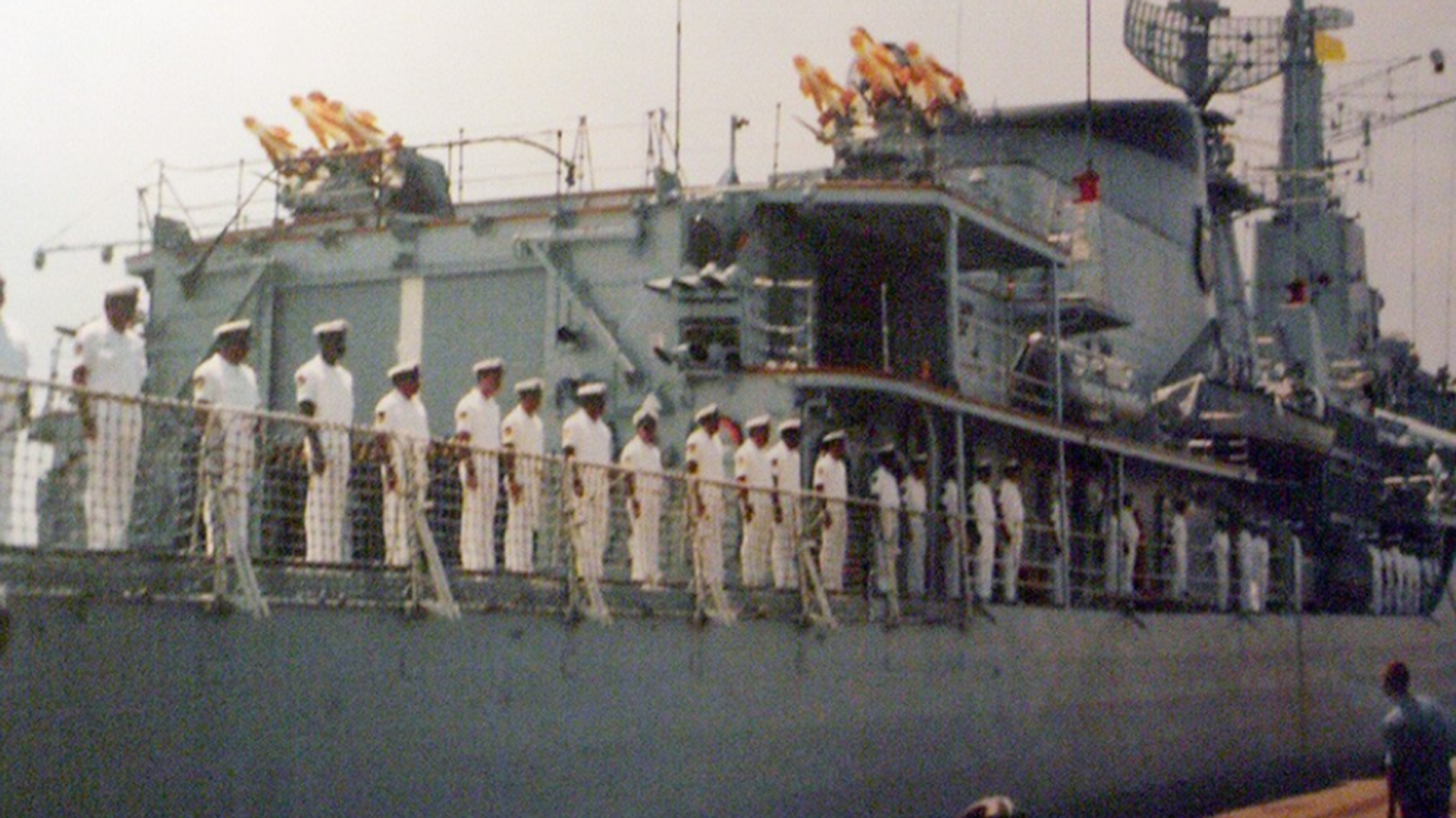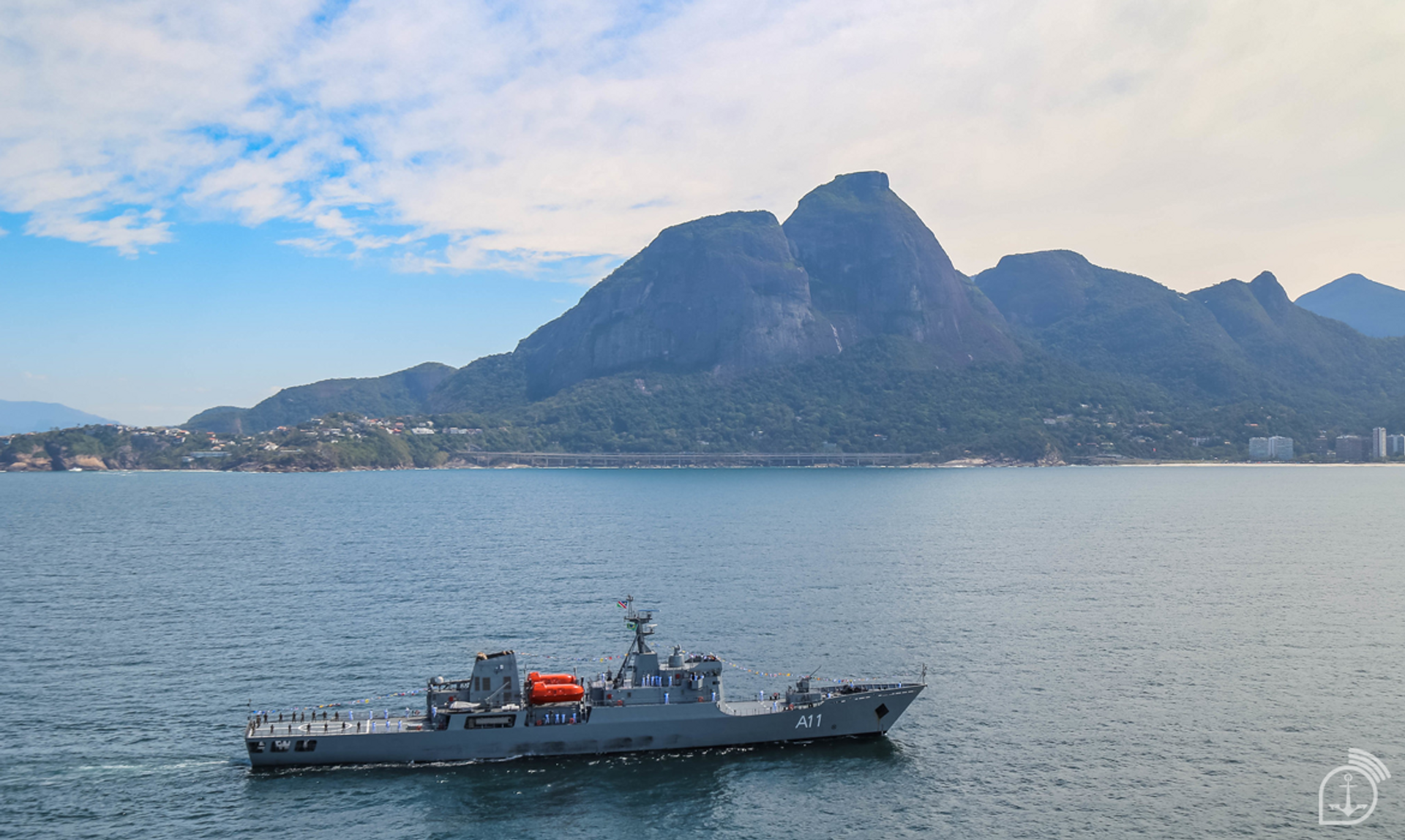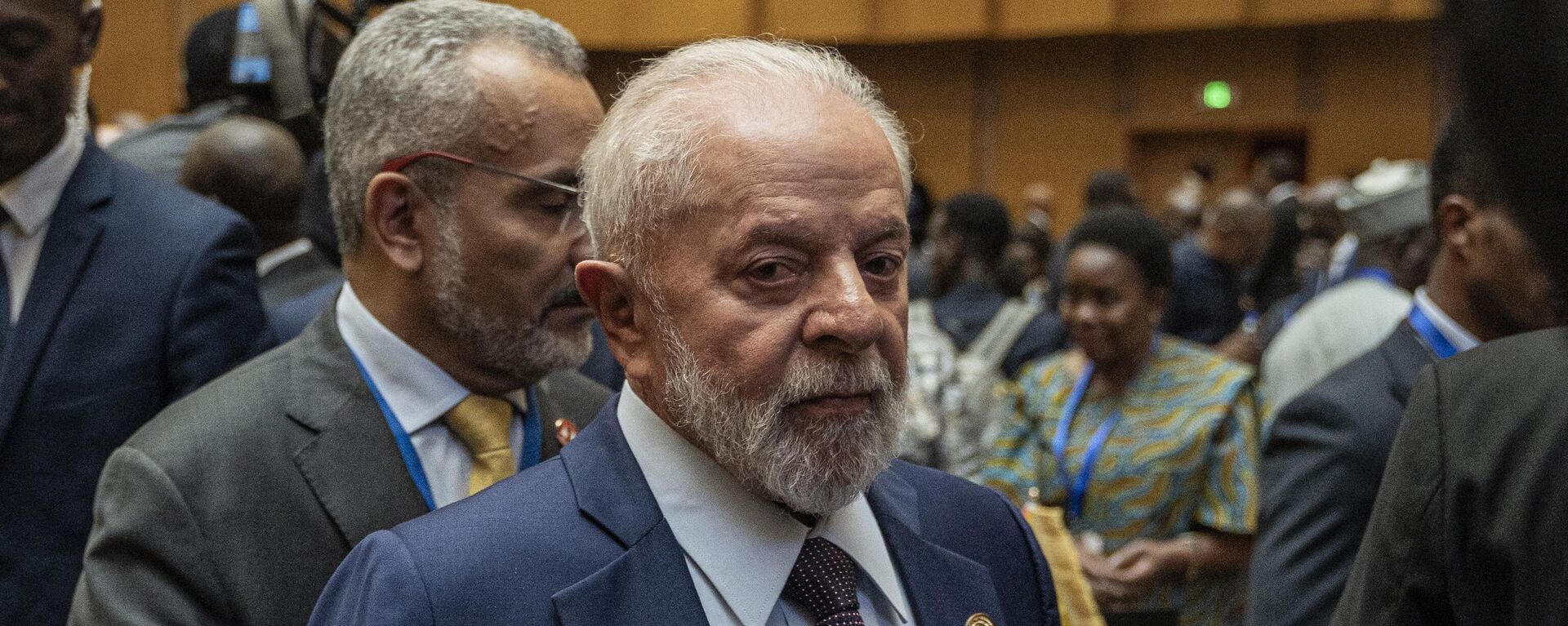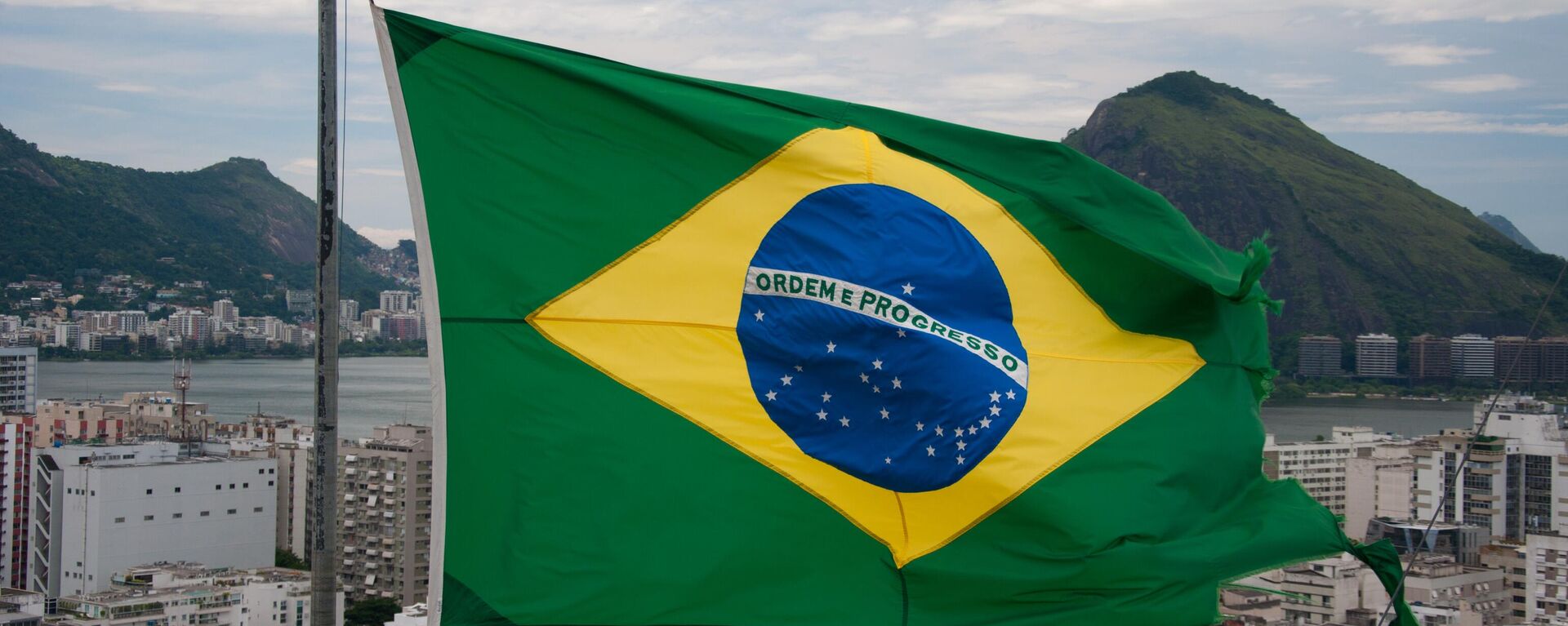https://en.sputniknews.africa/20240412/30-years-of-brazil-namibia-cooperation-countries-autonomy-increased-experts-say-1066032754.html
30 Years of Brazil-Namibia Cooperation: Countries' Autonomy Increased, Experts Say
30 Years of Brazil-Namibia Cooperation: Countries' Autonomy Increased, Experts Say
Sputnik Africa
The partnership between Brazil and Namibia, "Sisters in Arms", is the longest Brazilian military cooperation with an African country, reaching 30 years in... 12.04.2024, Sputnik Africa
2024-04-12T16:12+0200
2024-04-12T16:12+0200
2024-04-12T16:12+0200
brazil
namibia
south africa
lula da silva
united nations (un)
world food programme (wfp)
international
cooperation
military cooperation
navy
https://cdn1.img.sputniknews.africa/img/07e8/04/0c/1066034010_0:0:1108:623_1920x0_80_0_0_468cb7eb9f0a372ce3790f9d2143f2d5.png
The agreement was signed four years after Namibia's independence and allowed for the official establishment of the Namibian Navy in 2004, which protects an extensive coastal area in South Africa. The three decades of naval cooperation between the countries have been marked by several achievements, with initiatives that "ensure the potential to increase the strategic autonomy of the cooperating country," Murilo Gomes da Costa, PhD in Political Science at the Institute of Social and Political Studies (IESP) of the Brazilian State University of Rio de Janeiro (UERJ), told Sputnik.The researcher from the World Political Analysis Laboratory (Labmundo), who received the Atlantic Security Award in 2022 for developing the research project "The Potential for Defense Cooperation in the South Atlantic," says that one of the milestones was the "hydrographic survey of the Namibian coast" conducted in 1997 by the Brazilian hydrographic ship Sirius.This resulted in the first chart of the port of Walvis Bay, which came under Namibian control on February 28, 1994. Until then, the area remained under the jurisdiction of South Africa.The Namibian coast, consisting almost entirely of the Namib desert, then enjoyed a gateway to the Atlantic Ocean, which served as the basis for the partnership.According to da Costa, the naval agreement was revised and expanded in 2001, allowing 1,179 Namibian military personnel, about 90% of the country's naval personnel, to be trained at Brazilian naval facilities over a ten-year period.Naval CooperationIn addition to Namibia, the Brazilian Navy has similar security partnerships with South Africa, Angola, Cabo Verde, Nigeria, Senegal, São Tomé and Príncipe, Ghana, Benin, and Togo, as well as pacts with Egypt and Mozambique, not limited to the west coast of the African continent, Alexandre Alvarenga, Professor of International Relations at the Veiga de Almeida University (UVA), told Sputnik.According to him, the cooperation can be assessed positively from a geopolitical perspective and within the framework of South-South cooperation. "From a geopolitical perspective, the partnership contributes to Brazil's greater insertion, presence and participation in the South Atlantic and the West Coast of Africa through joint missions, operations and training," he said.UERJ researcher Murilo Gomes da Costa pointed to other data, such as that on military training, which mainly involved Namibian officers. "Between 2002 and 2014, 1.9 thousand officers from South Atlantic African countries were trained in Brazilian military institutions. Of these, 1,533 were trained by the Navy, of which 89% (1,364) were Namibian officers," the scholar underscored.According to him, in September 2022, the NS Elephant became the first Namibian ship to cross the Atlantic Ocean to participate in Brazil's bicentennial celebration of its independence and to take part in the Unitas LXIII multilateral naval exercise in Rio de Janeiro.The researcher noted that between 2003 and 2006, Brazil advised Namibia on the preparation of the documentation required by the United Nations Commission on the Limits of the Continental Shelf (CLCS) for "the presentation of a formal proposal for the extension of the Namibian continental shelf."In addition, he highlighted that more than 1,400 Namibian marines have been trained by Brazilian counterparts in courses held in the country, which contributed to the creation of the Namibian Marine Corps in 2016.Military PartnershipAccording to da Costa, the Brazilian Army plays an "important role" in bilateral defense cooperation agreements with African countries. Since 2016, he said, the Brazilian Army has designated an officer to perform the function of instructor at the National School of Active Officers (ENOA) and a monitor for the National School of Active Noncommissioned Officers (ENSOA).Another dimension of military cooperation took place in the Democratic Republic of the Congo, he said, with the deployment of the mobile Jungle Operations Training Team, which disseminates specialized technical knowledge on jungle operations within the framework of the United Nations Organization Stabilization Mission in the Democratic Republic of the Congo (MONUSCO).Da Costa explained that since then, according to the Itamaraty database, the Brazilian government has also signed nine framework agreements for defense cooperation with South Atlantic countries - South Africa (2003); Guinea-Bissau (2006); Namibia (2009); Nigeria, São Tomé and Príncipe, Senegal and Angola (2010); Cape Verde (2016) and São Tomé and Príncipe (2017).Importance of Brazilian Africanist Foreign PolicyCosta noted a "resumption of an Africanist foreign policy" with the new government of the Brazilian President Luiz Inácio Lula da Silva.This is evident, for example, in the diplomatic visit of the Brazilian Cooperation Agency (ABC) team in July 2023, where the activities of the Integrated Community Food Systems Project, supported by the Brazilian government, were reviewed through the Brazilian Embassy in Windhoek, the capital of Namibia, in partnership with the World Food Program (WFP).UVA Professor Alvarenga pointed out that "from a South-South cooperation perspective, the partnership also contributes to technical exchanges, professional training, the creation of institutions, the development of commercial relations and the opening of markets, especially for the Brazilian naval industry."He emphasized that since the 1960s, Brazilian foreign policy has promoted "greater rapprochement and integration with the African continent," including initiatives in the areas of security, trade policy, and cultural integration aimed at expanding the country's international integration.What Are Nations of the South Atlantic?According to Alvarenga, the agreement between Brazil and Namibia is in line with the National Defense Policy (PND), which established the South Atlantic Ocean and the West African coast as priority areas of Brazilian strategic interest, and with the United Nations (UN) resolution of 1986, which established the South Atlantic as the South Atlantic Zone of Peace and Cooperation (ZOPACAS).ZOPACAS is composed of 24 countries, including South Africa, Angola, Argentina, Benin, Brazil, Cape Verde, Cameroon, Congo-Brazzaville, Congo-Kinshasa, Côte d'Ivoire, Gabon, Gambia, Ghana, Guinea, Guinea-Bissau, Equatorial Guinea, Liberia, Namibia, Nigeria, São Tomé and Príncipe, Senegal, Sierra Leone, Togo and Uruguay, according to a 1986 United Nations resolution.According to Costa, "the success of cooperation with Namibia represents a legacy of Brazilian diplomatic construction in promoting the South Atlantic as a region of cooperation and peace."
https://en.sputniknews.africa/20240217/brazil-african-countries-must-work-out-their-way-in-global-governance-says-president-1065119291.html
https://en.sputniknews.africa/20240113/ukraine-taiwan-yemen-gaza--ecuador-how-brazil-could-survive-in-turbulent-world-experts-explain-1064601286.html
brazil
namibia
south africa
latin america
south america
atlantic ocean
Sputnik Africa
feedback@sputniknews.com
+74956456601
MIA „Rossiya Segodnya“
2024
Sputnik Africa
feedback@sputniknews.com
+74956456601
MIA „Rossiya Segodnya“
News
en_EN
Sputnik Africa
feedback@sputniknews.com
+74956456601
MIA „Rossiya Segodnya“
Sputnik Africa
feedback@sputniknews.com
+74956456601
MIA „Rossiya Segodnya“
brazil, namibia, south africa, lula da silva, united nations (un), world food programme (wfp), international, cooperation, military cooperation, navy, military, foreign policy, latin america, south america, atlantic ocean
brazil, namibia, south africa, lula da silva, united nations (un), world food programme (wfp), international, cooperation, military cooperation, navy, military, foreign policy, latin america, south america, atlantic ocean
The agreement was signed four years after Namibia's independence and allowed for the official establishment of the Namibian Navy in 2004, which protects an extensive coastal area in South Africa.
The three decades of naval
cooperation between the countries have been marked by several achievements, with initiatives that "ensure the potential to increase the strategic autonomy of the cooperating country,"
Murilo Gomes da Costa, PhD in Political Science at the Institute of Social and Political Studies (IESP) of the Brazilian State University of Rio de Janeiro (UERJ), told
Sputnik.The researcher from the World Political Analysis Laboratory (Labmundo), who received the Atlantic Security Award in 2022 for developing the research project "The Potential for Defense Cooperation in the South Atlantic," says that one of the milestones was the "hydrographic survey of the Namibian coast" conducted in 1997 by the Brazilian hydrographic ship Sirius.
This resulted in the first chart of the port of Walvis Bay, which came under Namibian control on February 28, 1994. Until then, the area remained under the jurisdiction of South Africa.
The Namibian coast, consisting almost entirely of the Namib desert, then enjoyed a gateway to the Atlantic Ocean, which served as the basis for the partnership.
According to da Costa, the naval agreement was revised and expanded in 2001, allowing 1,179 Namibian military personnel, about 90% of the country's naval personnel, to be trained at
Brazilian naval facilities over a ten-year period.
"Since then, annually, new courses and training are offered to the Namibian Navy in areas ranging from cartography to military strategy," the expert underlined.
In addition to Namibia, the Brazilian Navy has similar security
partnerships with South Africa, Angola, Cabo Verde, Nigeria, Senegal, São Tomé and Príncipe, Ghana, Benin, and Togo, as well as pacts with Egypt and Mozambique, not limited to the west coast of the African continent,
Alexandre Alvarenga, Professor of International Relations at the Veiga de Almeida University (UVA), told
Sputnik.According to him, the cooperation can be assessed positively from a geopolitical perspective and within the framework of South-South cooperation.
"From a geopolitical perspective, the partnership contributes to Brazil's greater insertion, presence and participation in the South Atlantic and the West Coast of Africa through joint missions, operations and training," he said.
"The institutional development of the South Atlantic countries, especially in the field of defense, can strengthen Brazil's efforts to ensure peace, security and stability in the region, especially through the coordination of policies and actions against external threats, piracy, arms and drug trafficking, illegal fishing, and environmental crimes," the expert explained.
UERJ researcher Murilo Gomes da Costa pointed to other data, such as that on military training, which mainly involved Namibian officers. "Between 2002 and 2014, 1.9 thousand officers from South Atlantic African countries were trained in
Brazilian military institutions. Of these, 1,533 were trained by the Navy, of which 89% (1,364) were Namibian officers," the scholar underscored.
"In the specific case of Namibia, as part of bilateral naval cooperation, Brazilian patrol vessels have regularly visited Namibia as part of naval training exercises along the African coast," he emphasized.
According to him, in September 2022, the NS Elephant became the first Namibian ship to cross the Atlantic Ocean to participate in Brazil's bicentennial celebration of its independence and to take part in the Unitas LXIII multilateral naval exercise in Rio de Janeiro.
"The Brazilian Navy carries out what we call a kind of naval diplomacy, which, in addition to strengthening military ties, often opens space for cooperation initiatives in other thematic areas," the expert stressed.
The researcher noted that between 2003 and 2006, Brazil advised Namibia on the preparation of the documentation required by the United Nations Commission on the Limits of the Continental Shelf (CLCS) for "the presentation of a formal proposal for the extension of the Namibian continental shelf."
In addition, he highlighted that more than 1,400 Namibian marines have been trained by Brazilian counterparts in courses held in the country, which contributed to the creation of the Namibian Marine Corps in 2016.
According to da Costa, the Brazilian Army plays an "important role" in bilateral defense cooperation
agreements with African countries. "For example, the technical cooperation in military training of the Brazilian Army in Africa falls within this framework. With Senegal, the Brazilian Mission for Cooperation in Military Engineering (MBCEM) was established," he emphasized.
Since 2016, he said, the Brazilian Army has designated an officer to perform the function of instructor at the National School of Active Officers (ENOA) and a monitor for the National School of Active Noncommissioned Officers (ENSOA).
"These schools have a 'regional vocation' because they group cadets from different African countries, such as Togo, Gabon, Central African Republic, Niger, Cameroon, Benin, Ivory Coast, Mali, Madagascar, Guinea, Burkina Faso, Gambia, Cabo Verde, Chad, Congo and Djibouti," the expert stressed.
Another dimension of military cooperation took place in the Democratic Republic of the Congo, he said, with the deployment of the mobile Jungle Operations Training Team, which disseminates specialized technical knowledge on jungle operations within the framework of the United Nations Organization Stabilization Mission in the Democratic Republic of the Congo (MONUSCO).
"In this mission, since 2018, Brazil has held the position of 'Force Commander,' which brings international visibility due to the size and complexity of this type of peacekeeping mission," he underlined.
Da Costa explained that since then, according to the Itamaraty database, the Brazilian government has also signed nine framework agreements for defense cooperation with South Atlantic countries - South Africa (2003); Guinea-Bissau (2006); Namibia (2009); Nigeria, São Tomé and Príncipe, Senegal and Angola (2010); Cape Verde (2016) and São Tomé and Príncipe (2017).
Importance of Brazilian Africanist Foreign Policy
Costa noted a "resumption of an
Africanist foreign policy" with the new government of the Brazilian President Luiz Inácio Lula da Silva.
This is evident, for example, in the diplomatic visit of the Brazilian Cooperation Agency (ABC) team in July 2023, where the activities of the Integrated Community Food Systems Project, supported by the Brazilian government, were reviewed through the Brazilian Embassy in Windhoek, the capital of Namibia, in partnership with the World Food Program (WFP).
"The government of Namibia has expressed interest in technical and humanitarian cooperation in specific areas, such as the promotion of gender equality, agricultural technical education, rural extension, livestock, support for the implementation of public policies, replication of successful agricultural projects in different regions of the country through the training of multipliers," the expert underscored.
UVA Professor Alvarenga pointed out that "from a South-South cooperation perspective, the partnership also contributes to technical exchanges, professional training, the creation of institutions, the development of commercial relations and the opening of markets, especially for the Brazilian naval industry."
He emphasized that since the 1960s, Brazilian
foreign policy has promoted "greater rapprochement and integration with the African continent," including initiatives in the areas of security, trade policy, and cultural integration aimed at expanding the country's international integration.
"This agreement is within this objective, considering a little of each area. This type of cooperation strengthens Brazil's position in the region, creates new opportunities for cooperation, and can lead to greater political cohesion among the countries of the region in multilateral forums," Alvarenga stressed.
What Are Nations of the South Atlantic?
According to Alvarenga, the agreement between Brazil and Namibia is in line with the National Defense Policy (PND), which established the South Atlantic Ocean and the West African coast as priority areas of Brazilian strategic interest, and with the United Nations (UN) resolution of 1986, which established the South Atlantic as the South Atlantic Zone of Peace and Cooperation (ZOPACAS).
ZOPACAS is composed of 24 countries, including South Africa, Angola, Argentina, Benin, Brazil, Cape Verde, Cameroon, Congo-Brazzaville, Congo-Kinshasa, Côte d'Ivoire, Gabon, Gambia, Ghana, Guinea, Guinea-Bissau, Equatorial Guinea, Liberia, Namibia, Nigeria, São Tomé and Príncipe, Senegal, Sierra Leone, Togo and Uruguay, according to a 1986 United Nations resolution.
According to Costa, "the success of cooperation with Namibia represents a legacy of Brazilian
diplomatic construction in promoting the South Atlantic as a region of cooperation and peace."
"These efforts led to the creation of ZOPACAS in 1986, of which Brazil and Namibia are members. The partnership with Namibia was just the beginning," he concluded.




